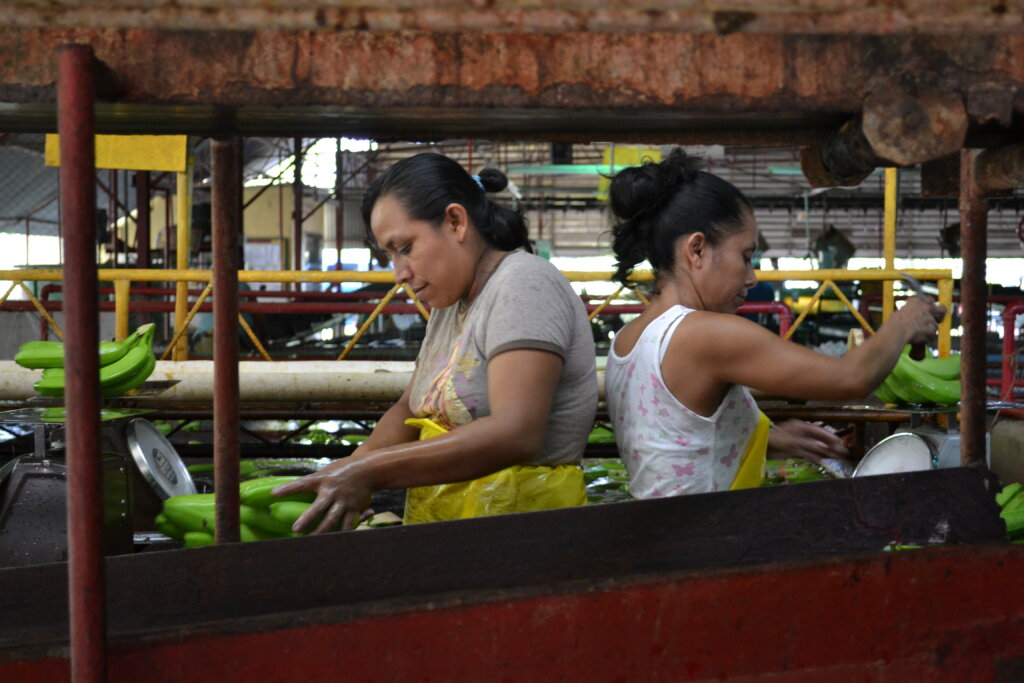International women’s day 2024 is being marked by empowerment training for banana plantation workers in Latin America. Tomorrow, workers in Ecuador will benefit from training on the Gender Pay Gap as part of a project supported by the German Development Agency GIZ that aims to support the establishment of conditions for social dialogue in the world’s largest banana exporting nation. In Costa Rica, women workers received training on their rights and how to defend them, as part of a separate project coordinated by Costa Rican agricultural plantation workers union SITRAP and the national association of public and private workers ANEP, to who they are affiliated (see video below).
The Latin American banana industry is one of the most highly male dominated workforces, with available data suggesting that around 87.5% of employees on Latin American banana plantations are men. Women face many barriers to employment, from the belief that field work is not suitable for women, to the increased risk to women posed by pesticide use, to the lack of childcare provision. Employers are often reluctant to hire women, perceiving them as ‘high risk, high cost’ employees due to their reproductive role. In some Latin American countries women have reportedly been required to produce medical certificates proving they are not pregnant, or submit to pregnancy tests before they are given jobs.
Meanwhile, women who are employed on banana plantations are typically paid less than male counterparts. Recent research in Colombia shows that there is a gender pay gap of between 8-20% for women employed on banana plantations in that country, which is likely to be typical of the wider region. Women are frequently hired on short-term contracts, and are perpetually at risk of losing their jobs. Sexual harassment is a widespread issue, aggravated by the precarious employment women often find themselves in: women are more vulnerable to harassment by colleagues and managers, and more likely to accept it instead of speaking up, because they fear losing their job if they do. This is especially the case where women are single heads of households, and the sole breadwinner for their children. In Latin America, the majority of women working on banana plantations fall into this category.
The push for gender equity is and must be a trade union issue – and increasingly it is recognised as such around the world. In the worlds of US Farm Labour Organizing Committee leader Yvonne,
“It is important for women to participate in the union to assert their rights and to defend ourselves because there has been discrimination due to us being women, and there is an incorrect belief that we are not capable of doing field work but we are capable of doing that and more. With the help of the union, we have been able to show that united we can all do more.
To all women I would say that together we can defend our rights, but not only for ourselves …but for each member of FLOC, because men and women are equal.”
